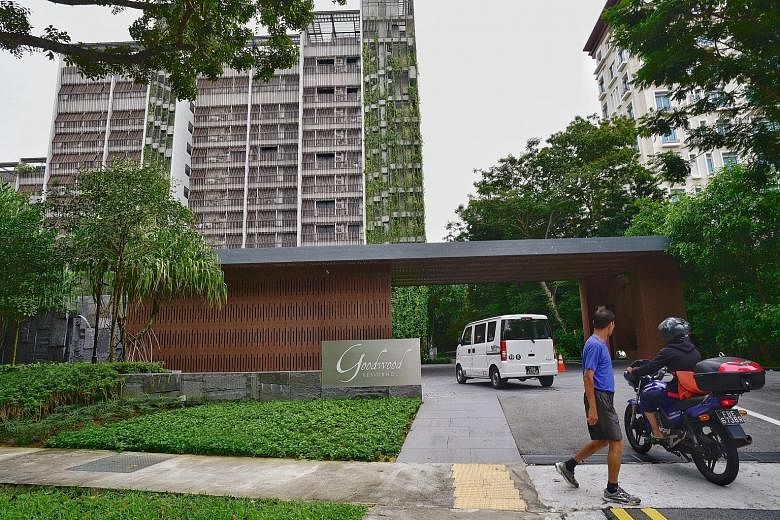The High Court, in a landmark case, has ruled that property bought by a charitable purpose trust was not subject to the additional buyer's stamp duty (ABSD), and ordered the taxman to refund the $986,965 in duty and late fees paid last year by the trustees on the deal.
The Commissioner of Stamp Duties had imposed the 15 per cent ABSD on the $6.56 million unit in Goodwood Residence condominium in Bukit Timah Road, bought by trustees of the Chew How Teck Foundation in 2015.
ABSD was introduced in 2011 as part of measures to moderate property price increases in Singapore.
The foundation, a registered charity established by Mr Chew Chee Thong in 1994, was meant to promote medical research and provide financial help in hardship cases both here and in Malaysia, among other things. Mr Chew died that year.
He left a will that provided for a property in Chee Hoon Avenue to be used by his widow, Madam Zhao Hui Fang, but with eventual ownership to reside in the charity foundation he established.
In 2014, the High Court authorised the will executors to sell the property for $22.8 million and use part of the monies to buy the Goodwood unit for Madam Zhao's use in the name of the foundation. She still lives in the unit.
The balance was lodged with the foundation, and the Goodwood deal was also cleared by the Commissioner of Charities in 2015.
Under the law, ABSD is payable where property is transferred to beneficial owners who are entities or foreigners. Madam Zhao is a Singaporean.
The trustees, represented by KhattarWong lawyer Joanna Yap Hui Min, appealed to the High Court against the commissioner's decision last year, arguing that ABSD should not be paid as the foundation was not an entity per se and stood to inherit the unit for charity eventually.
Counsel for the commissioner Julia Mohamed disputed the appeal for various reasons, pointing out that those factually benefiting from the charity work of the foundation are the beneficial owners of the Goodwood property, which in this case may include research institutes and Malaysian researchers.
Judicial Commissioner Aedit Abdullah clarified that there was a difference between beneficial ownership and getting a factual benefit from something.
"It goes against the very concept of a charitable trust to find that beneficial ownership is vested in factual beneficiaries of the charity.
"If that were the case, it should follow that all the persons factually benefiting could, if they so desired, get together and dispose the subject matter of the trust. But that is simply not the law," he said in judgment grounds issued last week.
He added that those factually benefiting from the objects of the charity, whether here or in Malaysia, were not the beneficial owners of the property. He said properties held under a charitable purpose trust do not have "identifiable beneficial owners" for ABSD to apply.
Judicial Commissioner Aedit made clear that there is nothing in principle to stop ABSD from being imposed on property deals by charities, but this was a policy matter for the authorities to decide on.
"There just needs to be stated clear imposition under the relevant statutory instrument," he said.


